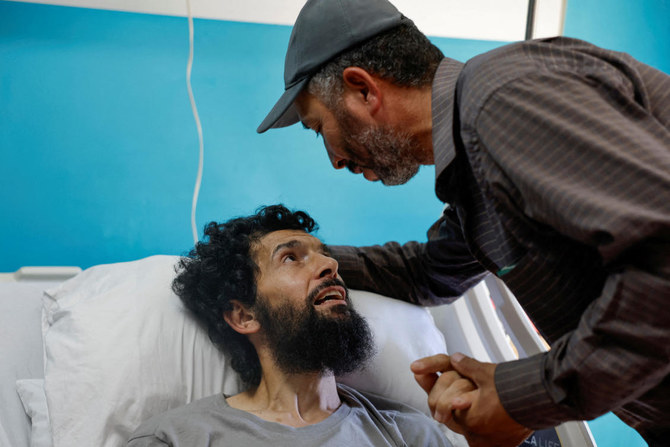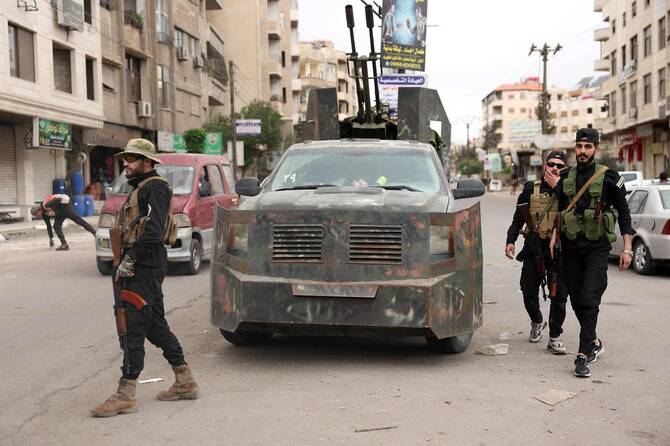JERUSALEM: Israel has conducted a systematic policy of prisoner abuse and torture since the start of the Gaza war, subjecting Palestinian detainees to acts ranging from arbitrary violence to sexual abuse, Israeli rights group B'Tselem said in a report.
It said the report, issued on Monday, was based on interviews with 55 Palestinians from Gaza, the West Bank and Israel detained in Israeli prisons since Hamas' Oct. 7 attack on Israel that set off the war, most of them without being tried.
"The testimonies clearly indicate a systematic, institutional policy focused on the continual abuse and torture of all Palestinian prisoners held by Israel," the report said.
The Israeli military, which runs some detention facilities where Palestinian prisoners have been held, said that it operated according to the rule of law and any specific claims of abuse were investigated.
"The IDF categorically rejects allegations of systematic abuse, including sexual abuse, in its detention facilities," it said, adding that monitoring mechanisms were in place to ensure facilities were run in accordance with the law.
A spokesperson for the Israel Prison Service said that all prisoners were treated according to the law and all basic rights were fully applied by professionally trained guards.
"We are not aware of the claims you described and as far as we know, no such events have occurred under IPS responsibility," the spokesperson said, adding that detainees had the right to file complaints that would be fully examined and investigated.
The B'Tselem report was issued days after the Israeli military detained nine soldiers accused of severe abuse of a prisoner in a military facility in the Negev desert. Israeli press reports said the soldiers were accused of sexually abusing a member of an elite Hamas unit.
The report detailed allegations that Palestinian prisoners were subjected to arbitrary beatings, degrading and humiliating treatment and sleep deprivation, as well as "the repeated use of sexual violence, in varying degrees of severity".
"The overall picture indicates abuse and torture carried out under orders, in utter defiance of Israel's obligations both under domestic law and international law," it said.
'Utter humiliation'
Fathiyeh Abu Mousa said the treatment she received was routinely humiliating and that she was held in handcuffs and chains even as she was being released from detention in July without charges being laid.
"The food is very bad and they give it to us in a humiliating manner," she told Reuters. "They gave us two meals a day, no clothes or shampoo to bathe or shower. My face flared up with a rash from the mattress. It was utter humiliation there."
Allegations of prisoner abuse have surfaced repeatedly during the Gaza war, adding to mounting international pressure on Israel over its conduct of the 10-month-old conflict.
The report from B'Tselem, a group that documents human rights violations by Israel in the occupied West Bank and other areas, said the treatment accorded to prisoners was a deliberate policy implemented under the direction of the far-right National Security Minister Itamar Ben-Gvir.
The prison service spokesperson said that since the Oct. 7 attack, Ben-Gvir had ordered that prison conditions be made more strict to reverse an improvement in conditions allowed previously.
Qadura Fares, head of the Palestine Liberation Organization's Commission for Prisoners and Ex-Detainees Affairs, reiterated a call for an international commission of inquiry into the treatment of prisoners to hold Israel accountable.
"We have documentation of the crimes committed by Israel against Palestinian detainees in its prisons and we have horrific testimonies of what detainees are subjected to, whether related to torture, rape and other crimes," he said.
























